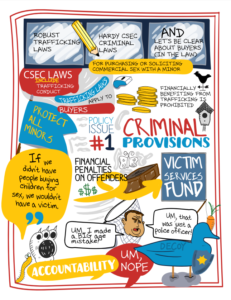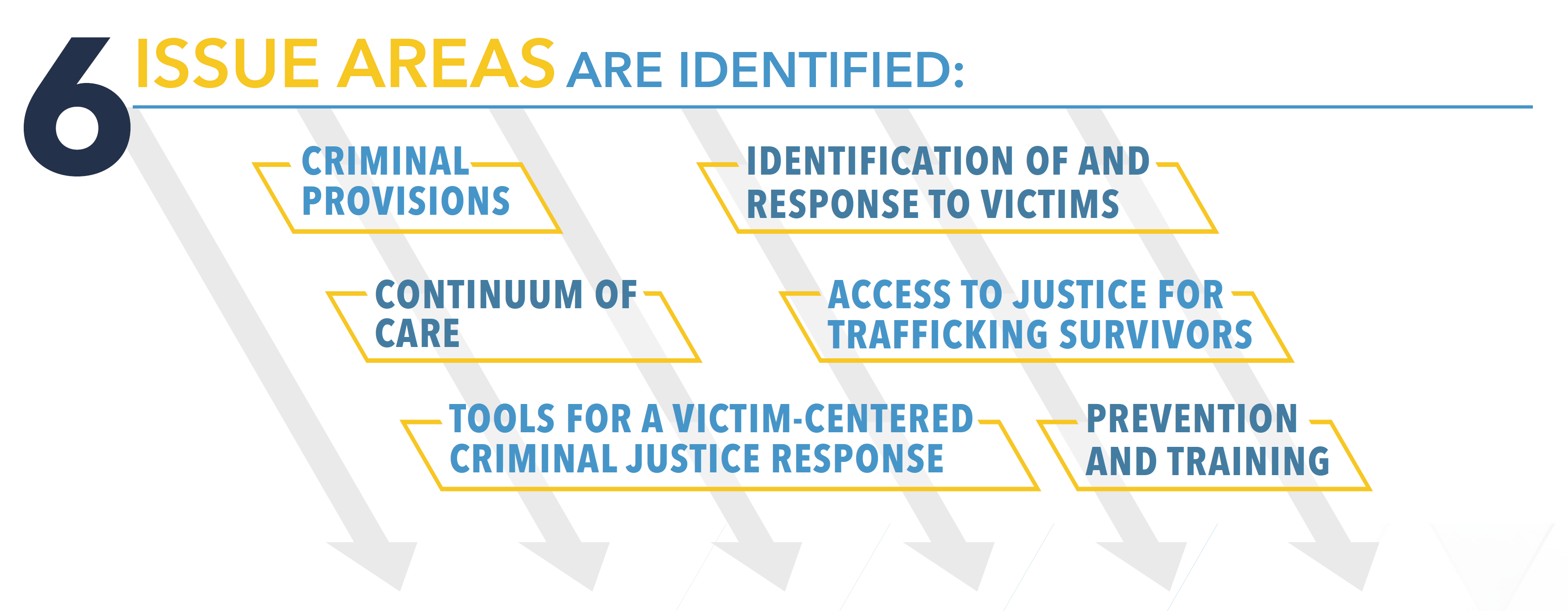
In November 2020, Shared Hope released an advanced legislative framework that will take our annual state report cards to the next level, urging states to focus more deeply and more effectively on victim protections and services.
This fall we will release the inaugural Report Cards on Child & Youth Sex Trafficking, grading all 50 states and the District of Columbia on the six issue areas that make up the advanced framework.

The first issue area, Criminal Provisions, focuses on creating clear criminal laws to hold sex trafficking offenders accountable, especially those who purchase sex with minors. Of particular importance is ensuring that any buyer of sex with a minor can be held accountable as a sex trafficker, as this directly impacts victim identification and ensures those who exploit children by purchasing them for sex are held accountable for the fundamental role they play in the crime of child sex trafficking. Unfortunately, many states do not recognize exploiters who purchase children for sex as sex trafficking offenders.
Why must states continue to improve their criminal laws?
As Shared Hope has seen over the years through its Protected Innocence Challenge Project which analyzed states’ laws from 2011 to 2019 with a particular focus on state criminal laws, states have made considerable progress in improving their criminal laws.

And yet, the demand for commercial sex with child victims remains high. Indeed, it is the main motivator behind child and youth sex trafficking, and without properly acknowledging these exploiters’ role in the crime of child sex trafficking and penalizing them accordingly, demand will continue to exist. Without legislation focused on criminal provisions for exploiters who purchase children for sex, they won’t be afraid to take the risk of engaging in commercial sex with minors.
In many states, sex trafficking offenders can also assert a “mistake of age” defense if law enforcement went undercover as a minor to investigate and arrest them for soliciting or recruiting a child into sex trafficking. It is imperative that trafficking exploiters are held responsible for their roles in child sex trafficking and not given this opportunity to lessen their penalties and shift the weight of their mistake to the child victims they exploit.
Lastly, financial penalties imposed on convicted perpetrators can be directed to support victim services that will help survivors overcome their trauma. In this way, programs such as cognitive therapy, case management, and job skills development can be paid in part by the exploiters who caused the harm in the first place.
What do to next
- Sign up to receive the Report Cards for Child & Youth Sex Trafficking to be the first to know when your state’s grade is released!
- Sign up to become a Grassroots Hero and receive monthly newsletters focused on policy initiatives, legislative wins, and urgent calls-to-action to help victims.
- Contact your state and federal legislators about important bills or issues related to sex trafficking on our Advocacy Action Center.
- Share this blog on social media so they can learn more about the importance of criminal provisions against sex traffickers.






